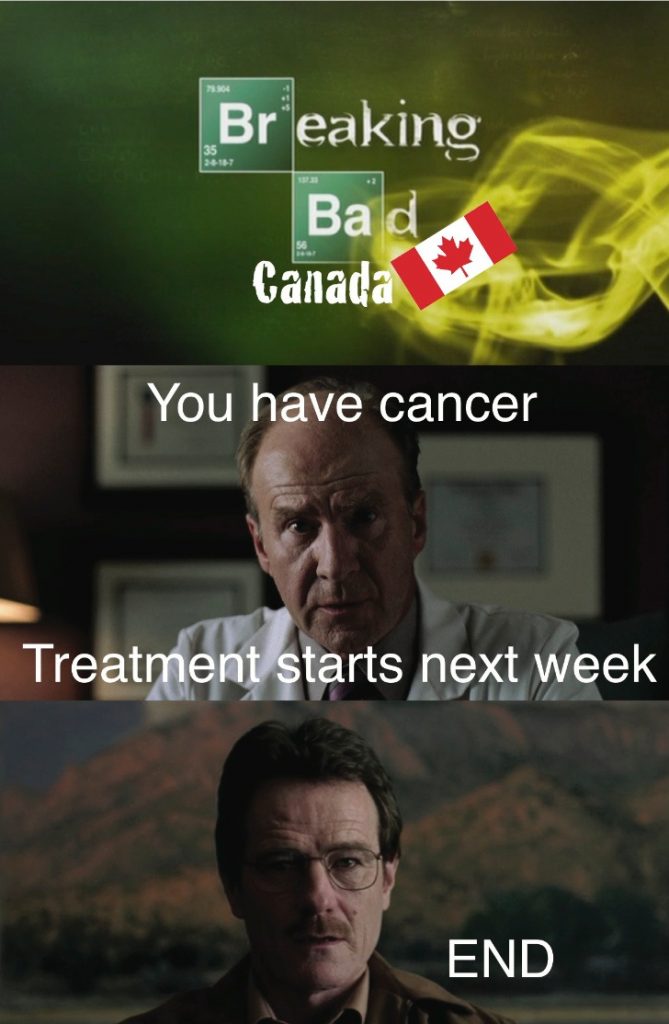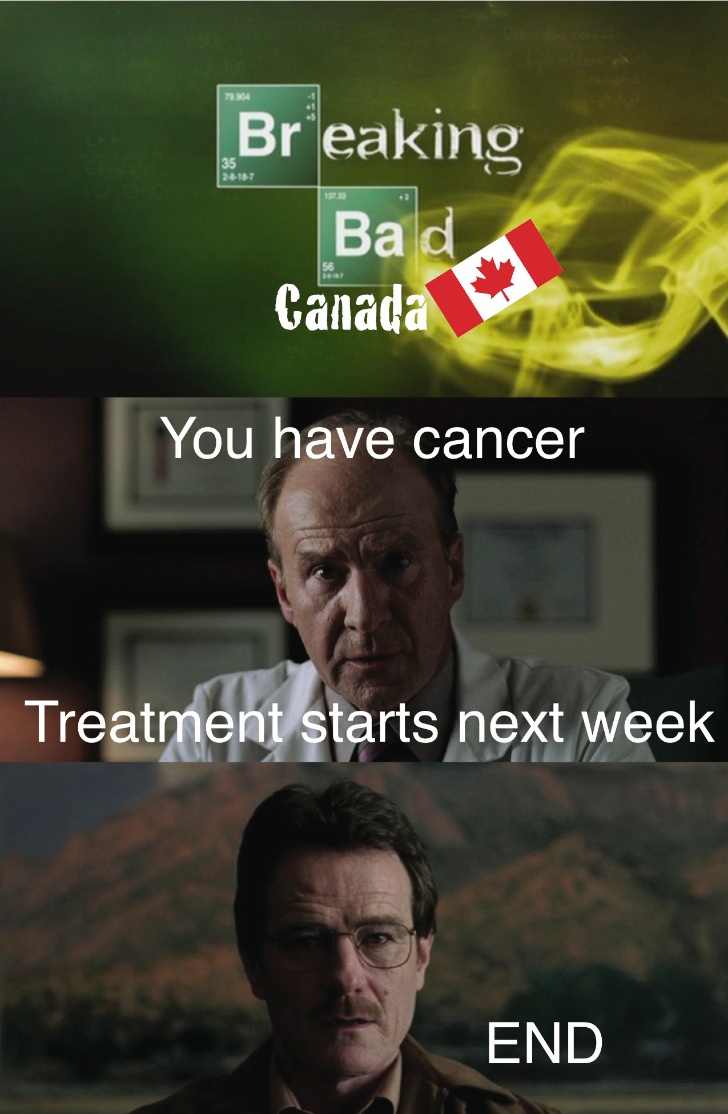Last Updated on August 10, 2020 by James Dziezynski
I remember the first crowdsourcing campaigns that surfaced in my social media feeds. The majority of requests came from musicians hoping to release music, designers aiming to give life to their video games, or inventors bringing new gadgets into the world—fun, creative, ideas. Crowdsourcing websites began as a way to drag deferred dreams into existence, but in recent times they’ve become portals to far less whimsical notions. In many cases, they are the difference between life and death.

While the most visible crowdsourcing site, Kickstarter, is focused on artistic pursuits, medically based crowd funded websites are now one of last-gasp outlets for Americans facing serious medical and financial difficulties. Pleas for help from friends, or friends of friends, show up regularly in my social media feeds from sites like Youcaring, Fundly, and GoFundMe. These aren’t frivolous requests. In some cases they are literally life or death campaigns. A short list of what I’ve seen in my own personal feeds has included: cancer treatment, kidney transplant, emergency eye surgery, injury recovery, fund raising for a new wheelchair, and physical therapy. Less grave but still deeply impactful have been campaigns such as: critical money for a spouse of a murdered police officer, widowed veterans, PTSD treatments, dozens of calls for help for injury treatments, transport back to the US from foreign countries following injury, single mothers needing critical automobile repairs, and replacement eyeglasses for children. I’m guessing you have a list of your own that has shown up in Facebook or Twitter.
With promised cuts to vital health services and programs such as Planned Parenthood and the ACA, I expect to see an increase in “crowdsourced coverage” in 2017. The fact Americans living in the most economically prosperous country in the world have to grovel for life-saving treatments and quality-of-life treatment is unacceptable. America’s inability to care for its own is the most damning and egregious manifestation of the deeply entrenched systems of inequality and greed that tilt the scales towards a true decline of power and prosperity.
There is nobility in the fact that many of these campaigns reach their goals through the donations of caring friends and strangers—I donate what I can, when I can. With the threat of repeal of affordable health care (and a lack of a better, improved plan in its place), I may one day find myself calling out for help. The fact our government is indifferent to serious health problems among the most vulnerable is one of most embarrasing and frightful failures of our elected officials. The fact that friends and strangers step up time and time again is evidence that there is still something wonderful in the American spirit found in the people themselves. I worry that the more normal crowdsourcing becomes, the more policy will avoid addressing the real crisis.
It gets more depressing.
One of the best books regarding the overt truth of a corrupt system is Dr. Marcia Angell’s The Truth About the Drug Companies: How They Deceive Us and What to Do About It. First published in 2005, this deeply researched book is a disheartening look at Big Pharma’s highly unethical but entirely legal practices in America, complete with concrete examples of just how corrupt and ugly the system really is. For example, nearly all pharmaceutical companies spend more that 85% of their budgets on marketing, relying on publicly-funded universities to do the actual grunt work of developing new drugs. John Oliver brought publicity to the disgraceful practice of selling medical debt when he purchased and absolved $14 million dollars of fee and penalty heavy debt for $60,000. “Pharma-bro” Martin Shkreli hyper-inflated drug costs while Mylan tried to justify a ridiculous price spike of EpiPens. While there are certain champions of reform in congress, such as Senators Elizabeth Warren and Bernie Sanders, the majority of senators and politicians who could enact real change are firmly in the pocket of health care conglomerates—and that includes Senators from both major parties.
When I feel disappointment at my fellow Americans for voting in weak leaders like Mitch McConnell and Donald Trump partially because they are blatant allies of the catastrophic systems that will continue to drive Americans into desperate debt and overwhelming poverty. It’s clear that public policy, specifically Republican-based policy, has no intention of easing the fears that a cancer diagnosis will cost us everything, from our homes to our very lives. It’s clear that Americans are nearly immune to the outrage that should burn in our veins every time we see hard-working friends and family crying out for help in crowdsourcing efforts.
I don’t know why I feel like a minority in finding this unacceptable. Government at its core is designed to serve the people, not vice-versa. Along with schools, infrastructure, law enforcement, and education, health care policy should absolutely be in place that protects all citizens from the spiral of decline and desperation that is self-evident in middle and lower class America. As informed citizens, we must be vigilant to avoid distraction from this issue and vote out the enablers who cause such hardship and support the earnest efforts of those willing to confront a complex—but not unresolvable—problem. There are many common sense solutions, ranging from a medical expense cap on individuals (a national deductible) to an actual, working single-payer system that has been successfully adopted in nearly every other first-world country.
Until then, we are left fending for ourselves and our own. America has become a large, dysfunctional family. The fact we refuse to address the very first notion in the Declaration of Independence, “Life” as in “Life, Liberty, and the pursuit of Happiness”, is to spit in the face of the most basic and fundamental aspiration of the founding fathers. There’s a reason Life, Liberty, and Happiness are capitalized in that most cherished document. This betrayal on the part of politicians isn’t as deeply entrenched as one might think. As recently as the 1970s, America had a relatively stable health care system that rarely pushed individuals over the financial brink.
I have the sinking feeling Kickstarter America is here to stay. Blame the politicians, blame uninformed misled voters, blame the empowerment of huge corporations, but until a sensible solution is enacted, Americans have no business spouting the audacious rhetoric that we are the greatest nation in the world. We’re a bad tribe who lacks the compassion—but not the resources—to take care of our own. Collectively, we have chosen fear as a national mantra, leaving the dream of prosperity a dimly lit candle, precariously flickering in the winds of change.





